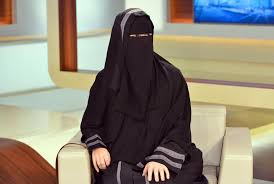Fatima Ahmad has been dreaming about becoming a teacher since she was a little girl.
At age six, she wrote down the aspiration in her diary, along with two other options: doctor and artist.
Ultimately, she chose teaching.
"I love kids, and it was just natural," she said.
Ahmad, now an undergraduate student in McGill University's faculty of education, is only a few years away from making her dream a reality.
But it may need to happen outside Quebec.
The new Coalition Avenir Québec government, which won a majority in last month's election, is planning to bar civil servants in positions of authority, including teachers, from wearing religious symbols such as the kippa or hijab.
Ahmad wears a niqab, a Muslim garment that covers her hair and face. She wears a hijab, which shows her face, when teaching elementary school children.
"Children are very open, they are very curious. They ask questions," she said, stressing that she's in the classroom to teach, not "preach."
Majority of Quebecers back ban
Premier François Legault's government isn't expected to table legislation on religious symbols until next year, after a round of consultations.
However, an opinion poll released Monday, ahead of the legislative session that starts today, is likely to give fuel to the CAQ's plan.
Living in Quebec and Canada I thought that most people, they were open, and they were for freedom of choice and freedom of religion.- Fatima Ahmad
The CROP poll, taken between Nov. 14 and 19, estimated that 72 per cent of Quebecers supported banning visible religious symbols for judges, 71 per cent supported banning them for prosecutors and police officers and 65 per cent backed extending the ban to public-school teachers.
Ahmad called the poll results "disappointing."
"Living in Quebec and Canada I thought that most people were open, were for freedom of choice and freedom of religion," said Ahmad, who was born in Montreal. Her father is from Bangladesh.
A separate survey, conducted recently by Vox Pop Labs, which operates Vote Compass for CBC and Radio-Canada, suggested Quebecers are more divided about what religious symbols teachers should be allowed to wear in the classroom.

The new Coalition Avenir Québec government, which won a majority in last month's election, is planning to bar civil servants in positions of authority, including teachers, from wearing religious symbols such as the kippa or hijab. (Ryan Remiorz/Canadian Press)
The kippa was opposed by 49 per cent, the turban by 51 per cent, the hijab by 52 per cent, and a large cross by 53 per cent.
Several unions representing teachers, as well as school boards, have come out against the ban as well.
"Targeting individuals based on what they wear and their personal religious beliefs feeds intolerance, and is in complete opposition to the very values of tolerance and inclusion that teachers promote in their classrooms every day," Peter Sutherland, the head of the Montreal Teachers Association, said in a statement last month.
Years of uncertainty
Like other religious minorities in Quebec, Ahmad has faced anxious moments in recent years.
She spoke out after the previous Liberal government made a law that required Quebecers to leave their faces uncovered in order to receive public services.
That portion of the law is still before the courts, subject to a constitutional challenge.

People take part in a demonstration against racism in Montreal, Sunday, October 7, 2018. (Graham Hughes/Canadian Press)
With the CAQ promising to go further, Ahmad is weighing her options ahead of her expected graduation in 2020.
She concedes, though, that she may not be able to teach in her home province.
"I think it would be very difficult to do so if this bill is passed," she said.
"It would limit me to private Muslim schools. I will most likely have to go out of Quebec to find work."
























